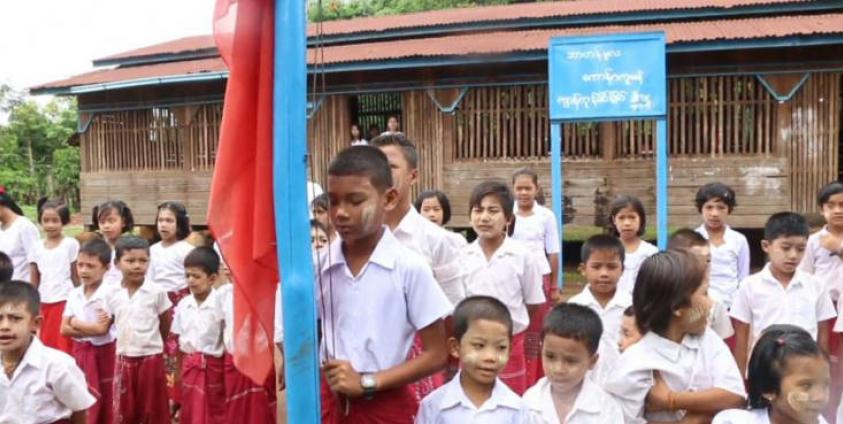The National Education Law amended by the military junta, Stata Administrative Council (SAC), has been criticized as implementing the ideology of chauvinism and discriminating other non-
Burman language, literature and culture of the ethnic groups.
On October 29, the SAC announced an amendment of statutory law, the National Education Law. The section (43), sub-section (b) of the National Education Law, which was amended by the Military Council, states that only the Burmese language must be used as a classroom language.
Article (43), sub-section (b) of the originally enacted National Education Law states that if there is a need at the basic education level, the ethnic language can be used together with the Burmese language as the language of instruction.
“Regarding Section 43, if there is a need, the ethnic language can be used together with the Burmese language as a school language. They reduced it and we have to teach only in Burmese language. We don’t like this, they can’t do this. This forces us, and there is no suggestion from the ethnic groups. It’s out of cooperation, as the SAC makes it their own way,” said Nai Rot Ka Koa, Mon National Education committee.
In addition, Article 44 of the statutory law stipulates that the teaching and learning of ethnic literature and language in the regions (or) and states can be implemented and gradually expanded starting from the basic education level with the plan of the relevant region (or) and state government.
The military junta has amended Article 44 to state that ethnic literature and language teaching and learning in regions (or) and states can be carried out at the basic education level through the plan of the relevant region (or) and state government.
The National Education Law enacted by the SAC has been criticized, and the Rakhine State Students' Union has stated that the provisions of the law are chauvinistic with the aim of eradicating the mother tongue of non-Burmese ethnic groups.
By implementing the federal education system, the ethnic people are establishing their respective national schools in the areas controlled by the ethnic revolutionary forces and implementing the mother tongue-based education system.
Mon National Schools have been established in the areas controlled by the New Mon State Party and in some Mon villages, focusing on the Mon language in their use in teaching to students in order to provide 4 skills to students more effectively.








